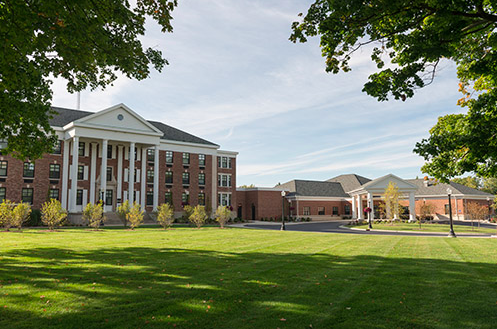Hillsdale Hospital has won three awards for its work environment in the past year.
Courtesy | Facebook
After receiving two awards for employee satisfaction in the past year, Hillsdale Hospital earned recognition as a top healthcare industry workplace earlier this summer.
Energage, a workplace analytics firm, listed Hillsdale Hospital as a “2023 Healthcare Top Workplace” nationwide. The industry award comes after the hospital earned state recognition as a top workplace in November and national recognition in February.
“Our work environment has been recognized statewide, nationally, and now nationally within our unique industry,” Jeremiah Hodshire, president and chief executive officer at Hillsdale Hospital, said in a press release. “During a time when healthcare faces unprecedented challenges recruiting and retaining team members, we are grateful to have such a dedicated, engaged team of professionals working to care for our patients.”
The awards were based on anonymous surveys asking workers about their satisfaction with employer appreciation, team collaboration, workplace training, and other factors, according to criteria listed on its website.
“It’s not a pay-to-play type of survey,” Rachel Lott, chief communications officer at Hillsdale Hospital, told The Collegian. “It’s truly just based on what our employees are sharing in that survey about their experience working here at Hillsdale Hospital, about the culture, about their level of engagement — that is what drives the results of these awards.”
Hodshire said it was a “significant achievement” for a rural hospital to be ranked as one of the top healthcare workplaces in the country.
“We are humbled to be counted among this prestigious group of healthcare employers,” Hodshire said.
The hospital received the awards as the healthcare industry continues to recover from a pandemic exodus of medical professionals from the workforce. More than 333,000 healthcare workers left the workforce in 2021, according to healthcare analytics company Definitive Healthcare. As of this week, the Health Resources and Services Administration said the U.S. healthcare industry needs more than 17,000 additional primary care practitioners.
Lott said the industry was expecting a worker shortage leading up to 2020, but that the pandemic brought the shortage quicker than expected.
“COVID happened and it just basically sped up the clock and made that shortage come to fruition much faster than originally expected,” Lott said. “Now we are in a position where it’s difficult to hire employees, just like other healthcare entities are experiencing.”
Despite a tight labor market, Lott said the hospital has been able to retain workers due to its “strong, people-focused” work culture. She said some traveling nurses have decided to stay and work at Hillsdale Hospital permanently.
“We’ve had at least a couple of cases where that has happened,” Lott said. “There’s a traveler and they decided, ‘Actually, I want to be a full-time part of this and a permanent part of this team,’ which I think speaks volumes.”
The hospital chose to confront the staffing shortage differently from many other hospitals and medical clinics during the pandemic, Lott said. Instead of advertising huge signing bonuses for new hires, she said the hospital offered retention bonuses to keep workers from leaving and help them feel appreciated.
“We did retention bonuses to recognize the people who were already here instead of handing a big fat check to somebody who just walked in off the street,” Lott said.
The hospital has since added referral bonuses to encourage workers to bring like-minded healthcare professionals to Hillsdale Hospital, according to Lott.
Senior Abigail Snyder said she appreciated the care she received at Hillsdale Hospital in February 2022 when she slipped on ice and broke her ankle while walking back from church.
“It was a Sunday afternoon, so I thought, ‘Maybe there won’t be a lot of people staffing there,’” Snyder said. “But within about three hours they had me in, triaged, had done the X-rays, I gave insurance information, paid, and was out the door. They had a very efficient and streamlined process.”

